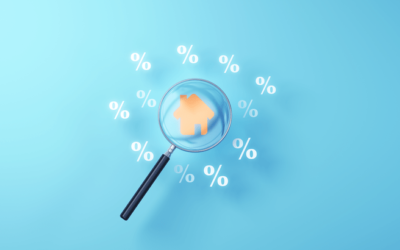There’s More to a Bubble Than Rising Home Prices

What truly causes a housing bubble and the inevitable crash? For the best explanation, let’s go to a person who correctly called the last housing bubble – a year before it happened.
“A bubble requires both overvaluation based on fundamentals and speculation. It is natural to focus on an asset’s fundamental value, but the real key for detecting a bubble is speculation…Speculation tends to chase appreciating assets, and then speculation begets more speculation, until finally, for some reason that will become obvious to all in hindsight, the ‘bubble’ bursts.
I have taken to calling the housing market a ‘bubble’.”
– Bill McBride of Calculated Risk calling the bubble back in April 2005
Where do we stand today regarding speculation?
There are two measurements that are used to determine the speculation in a housing market:
1. The number of homes purchased by an investor and
2. The number of homes being flipped (resold within a twelve-month period)
As compared to 2005, investor purchases are down dramatically (from 23% to 13%) and so is flipping (from 8.2% to 5.7%). McBride explains:
“There is currently some flipping activity, but this is more the normal type of flipping (buy, improve and then sell). Back in 2005, people were just buying homes and letting them sit vacant – and then selling without significant improvements. Classic speculation.”
What are the experts saying about speculation in today’s market?
DSNews recently ran an article which asked two economists to compare the speculation in today’s market to that in 2005-2007. Here is what they said:
Dr. Eddie Seiler, Chief Housing Economist at Summit Consulting:
“The speculative ‘flipping mania’ of 2006 is absent from most metro areas.”
Tian Liu, Chief Economist of Genworth Mortgage Insurance:
“The nature of housing demand is different as well, with more potential homeowners and far fewer speculators in the housing market compared to the 2005-2007 period.”
And what does McBride, who called the last housing bubble, think about today’s real estate market?
Sixty days ago, he explained:
“In 2005, people were just buying homes and letting them sit vacant – and then selling without significant improvements. Classic speculation. And even more dangerous during the bubble was the excessive use of leverage (all those poor-quality loans). Currently lending standards are decent, and loan quality is excellent…
I wouldn’t call house prices a bubble – and I don’t expect house prices to decline nationally like during the bust.”
Bottom Line
Speculation is a major element of the housing bubble formula. Right now, there are not elevated percentages of investors and house flippers. Therefore, there is not an elevated rate of speculation.
To view original article, please visit Keeping Current Matters.
Why Today’s Mortgage Debt Isn’t a Sign of a Housing Market Crash
Most homeowners today are employed and have low-interest mortgages they can afford, so they are able to make payments.
What’s Behind Today’s Mortgage Rate Volatility?
The best way to navigate this landscape is to have a team of real estate experts by your side.
Don’t Let These Two Concerns Hold You Back from Selling Your House
Working with a local real estate agent is the best way to see what inventory trends look like in your area.
More Homes, Slower Price Growth – What It Means for You as a Buyer
Having a real estate agent who knows the local area can be a big advantage when you start the buying process.
What’s Motivating Homeowners To Move Right Now
Selling your home isn’t just about market conditions or mortgage rates—it’s also about making the best decision for your lifestyle and future.
The Majority of Veterans Are Unaware of a Key VA Loan Benefit
VA home loans are designed to make homeownership a reality for those who have served our country.
Renting vs. Buying: The Net Worth Gap You Need To See
If you’re on the fence, it may be helpful to speak with a local real estate agent. They can help you weigh your options.
Expect the Unexpected: Anticipating Volatility in Today’s Housing Market
Understanding what’s happening will help you make the right decisions, whether that’s buying or selling.
Is a Fixer Upper Right for You?
The perfect home is the one you perfect after buying it. With careful planning, budgeting, and a little bit of vision, you can turn a house that needs some love into your perfect home.
How Real Estate Agents Take the Fear Out of Moving
Real estate agents are trusted guides to help you navigate the complexities of the housing market with confidence and ease.









